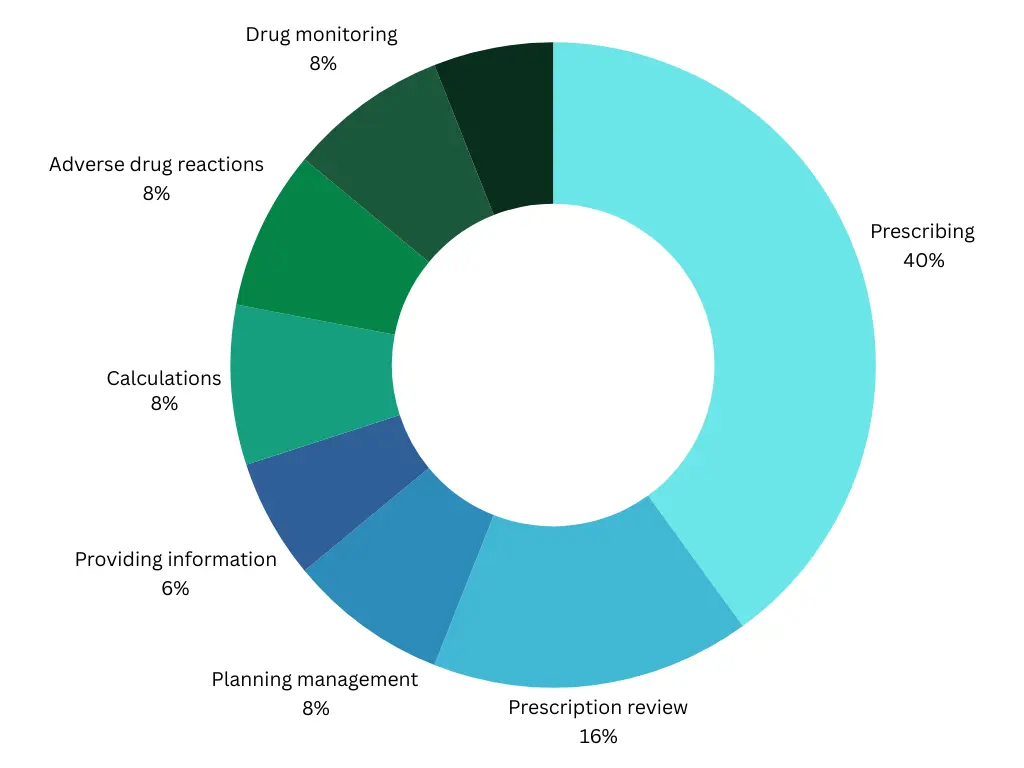Preview content might not be up to date. For full access to the live content, checkout our Pricing page.
Introduction
What is the Prescribing Safety Assessment (PSA)?
The PSA is an assessment typically undertaken by final medical students or Foundation Year 1 doctors in the United Kingdom, based on the General Medical Council's Outcomes for Graduates (2018). It is designed to evaluate the knowledge and skills necessary for prescribing as a Foundation Year 1 doctor in the NHS.
What does the PSA consist of?
The Prescribing Safety Assessment is an online exam lasting 2 hours, with a total of 200 marks. It is divided into 8 sections, each containing 6-8 questions, covering the following specialties:
- Medicine
- Surgery
- Elderly care
- Paediatrics
- Psychiatry
- Obstetrics & gynaecology
- General practice
Below is an overview of each section, outlining the topics covered, the number of questions, and the marks awarded for each section. Click on the chart for more details.

| Section 1: Prescribing |
| Involves accurately prescribing a safe and effective medication, taking into account the drug, dose, route, and frequency, tailored to a specific clinical scenario. |
|---|---|---|
| Section 2: Prescription review |
| Given a list of medications, you are expected to identify prescribing errors or drug interactions based on the clinical scenario, including issues such as dosing mistakes or incorrect frequencies. |
| Section 3: Planning management |
| Selecting the most appropriate management given a specific clinical scenario. |
| Section 4: Providing information |
| Identifying the key information to share with patients or carers to support safe and effective medicine administration or informed decision-making. |
| Section 5: Calculation skills |
| Performing various drug-related calculations, such as rates, dose conversions, and dilutions. |
| Section 6: Adverse drug reactions |
| Recognizing likely side effects of specific medications, avoiding harmful interactions, and determining the best approach to treat adverse events effectively. |
| Section 7: Drug monitoring |
| Identify the best approach to monitor both the harmful and beneficial effects of different medications. |
| Section 8: Data interpretation |
| Analyse and interpret relevant data to make informed decisions about drug therapies, which may involve adjusting doses, discontinuing treatment, or exploring alternative management options. |
The Prescribing Safety Assessment is a time-pressured exam, so it's crucial to develop a strategy to manage your time effectively. The chart below illustrates the marks allocated to each section. During the assessment, you'll have access to the BNF and Medicines Complete online. Commonly asked topics across all sections include antibiotics, anticoagulation, insulin, fluids, and opioids.
How does PSAComplete prepare me for the PSA?
PSAComplete offers tailored content created by top-performing candidates, designed specifically based on MSC assessment guidelines. Each section is covered in detail, with strategies for approaching each part and essential learning materials. You'll also have the opportunity to test your skills with an extensive set of practice questions. PSAComplete is your personal guide to preparing for the Prescribing Safety Assessment. Let’s get started!